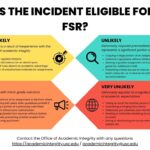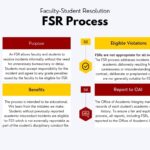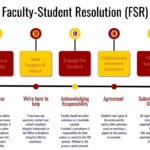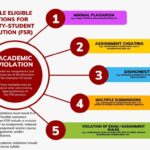Faculty Resources
How can faculty promote a climate of academic integrity in the classroom?
- Faculty should model integrity, create an environment that fosters respectful dialogue while encouraging and inspiring learning.
- The inclusion of professional and ethical standards should be at the center of the educational curriculum.
- When difficult issues arise in the academic or professional field of study, concerns should be addressed in a timely and respectful manner. These conversations should not be avoided or ignored.
- Faculty should address campus standards regarding academic integrity as well as their own expectations for ethical behavior in the course syllabus and during class discussions.
- Clear expectations must be established for assignments, tests, and grading, along with clearly defined rules for collaboration and citing sources.
- Academic integrity is an essential topic of conversation and should reinforce how honest work builds skills, knowledge, and self-esteem, while cheating and plagiarism do not.
CET is here to support your teaching practice by helping you design meaningful experiences that promote transparency and academic integrity. Whether you are exploring how to integrate AI tools into your assignments, establishing clear grading policies, or creating grading criteria we are here to help. Our team can also guide you in creating open dialogue with students, fostering understanding around academic integrity and course expectations. From thoughtful assignment design to engaging student discussions, CET is committed to partnering with you every step of the way.
Faculty-Student Resolution
A faculty-student resolution (FSR) is an opportunity for an instructor to directly resolve minor academic dishonesty violations with a student.
FSRs require that students accept responsibility for the allegation (and the instructor’s proposed resolution), the behavior is considered minor, and the student has not previously been responsible for an incident of academic dishonesty.
Students responsible for a violation of academic dishonesty (including those participating in the FSR process) will not be allowed to withdraw from the course (those found to have withdrawn will be re-enrolled), will be assigned a letter grade even if initially enrolled in the course on a pass/no pass basis, and may not replace the resulting grade by repeating the course.
After meeting with the student, instructors choosing to resolve the incident via the FSR process must complete the FSR Reporting form.
DO NOT assign grade penalties or other outcomes until you receive confirmation from OAI that the form has been signed and the process has been completed.
Instructors seeking advice about the FSR process are encouraged to consult with the Office of Academic Integrity or their Academic Integrity Ambassador, however, consultation is not required.




